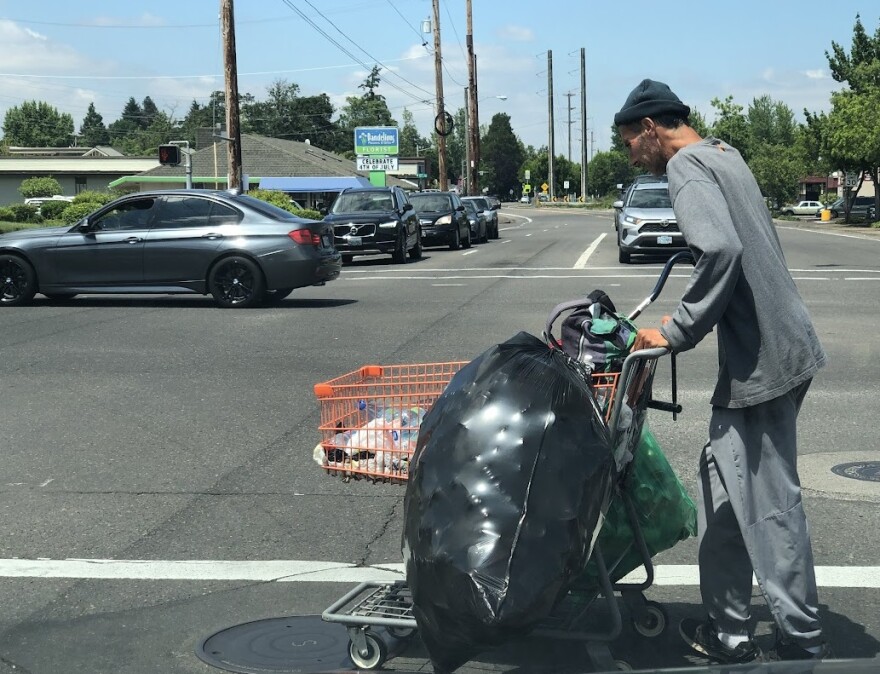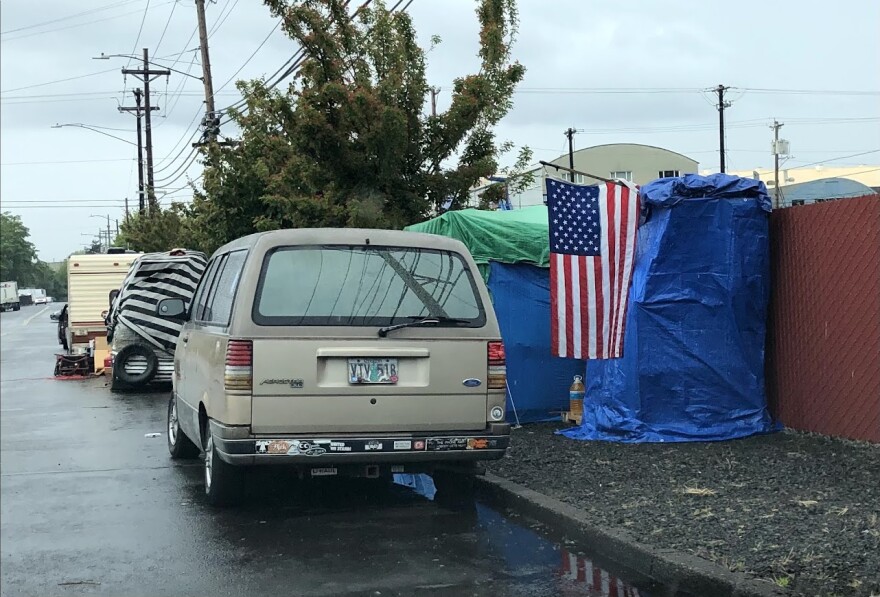A task force of 25 mayors across Oregon have signed a letter, expressing the need to partner with the state on tackling homelessness.
The Oregon Mayors Association has members from major cities and rural towns. In its letter to the three gubernatorial candidates and state legislature, the group wants direct annual allocations totaling $123 million for local homelessness and response programs.
Eugene City Mayor Lucy Vinis alluded to the scope of the issue when talking to KLCC at the grand opening of the Navigation Center last August.

“The City of Eugene is like an emergency room,” said Vinis. “We address the emergency that we are facing in terms of people not having shelter and services. What we are seeking is that creation of a larger hospital of services that helps people actually recover.
“There is a bigger concern for us as a state and as a nation about why people are falling into homelessness, and how we prevent that. And that is a larger conversation.”
The mayors met recently at the League of Oregon Cities conference in Bend. They concluded that, without a collaborative strategy, homelessness will remain a crisis.
In a letter sent Friday, the mayors ask Oregon legislators to spend the $123 million a year on new efforts to help cities end homelessness. They also want state money, on top of the hundreds of millions of dollars Oregon already spends each year on things like rental assistance, mental health and addiction support and programs that turn vacant motels into housing, to help build shelters and transitional housing projects.
“The number one issue throughout Oregon – in both rural and urban communities, large and small – is homelessness. We know this humanitarian crisis is impacting both the individuals directly experiencing homelessness as well as communities at large,” wrote the mayors, members of an Oregon Mayors Association task force that has been working on homelessness and the housing crisis.
“Many jurisdictions have developed new programs, expanded service efforts, built regional partnerships, and are making substantial investments of local general fund and American Rescue Plan Act (ARPA) funds to respond to the unhoused emergency. Yet, this humanitarian crisis exceeds our individual capacity.”
The mayors say cities cannot solve the problem without more direct help from state government. Historically, the state has supported local efforts and served as a go-between to get federal money to local governments.

The mayors of Portland, Beaverton, Bend and Eugene are among those who signed the letter. Willamette Week reports that Portland Mayor Ted Wheeler plans to announce a future ban on unsanctioned camping and creation of three 500-person campsites in coming days and has asked Multnomah County to pay for and build the camps.
The idea of forcing people living outdoors to enter a shelter or camp or face possible criminal charges is controversial but gaining political momentum as elected leaders hear from constituents who are tired of seeing tents and the detritus that comes with mass public camping. Two of the three major candidates for governor, former state Rep. Christine Drazan, a Republican, and former state Sen. Betsy Johnson, who is running as an unaffiliated candidate, have both supported taking a tougher line on homelessness, as had Rene Gonzalez, who is challenging Portland Commissioner Jo Ann Hardesty in the Nov. 8 election. All three have received major financial support from business leaders who support a tougher approach and have pushed Wheeler and other city leaders to clean up downtown Portland.
But forcing people indoors or into camps will also be expensive. Federal courts have repeatedly ruled that cities cannot criminalize homelessness if they cannot provide adequate shelter space, and both Multnomah County and the state as a whole currently lack enough beds for everyone who needs one.
The state also has a massive shortfall in affordable housing. Recent estimates say Oregon needs at least 111,000 more housing units, mainly ones that would help lower-income families.
©2022, KLCC, Oregon Public Broadcasting.








